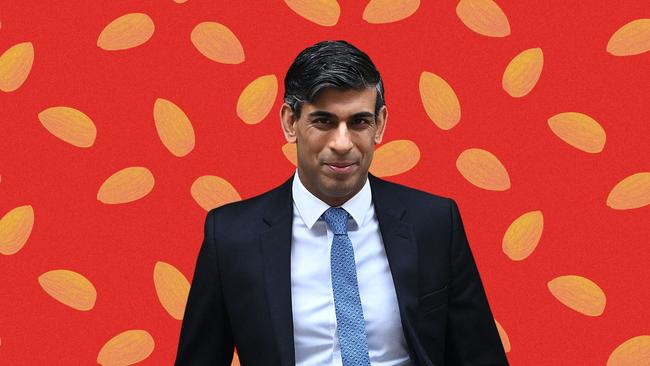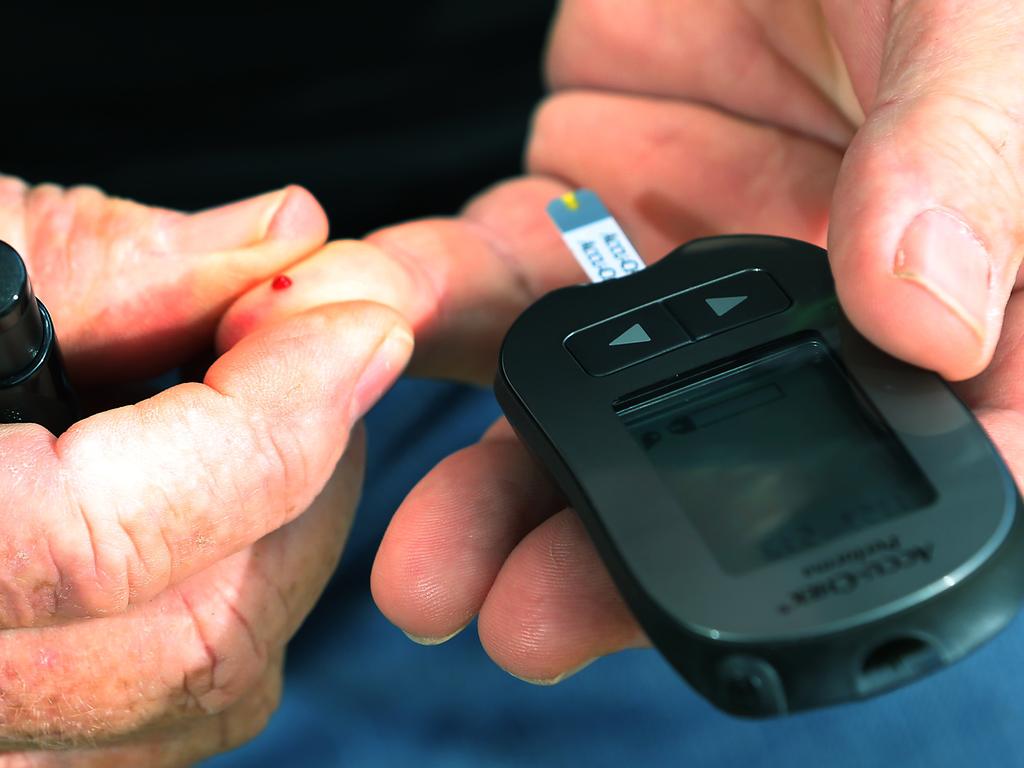Don’t try 36-hour fasts like Rishi. A day a week without food is fine.
The prime minister’s regimen is extreme, but will a shorter weekly fast stave off diabetes?

Rishi Sunak says that, give or take a nut or two, he fasts for 36 hours at the start of each week as part of a “balanced lifestyle”, which seems extreme by anyone’s standards. However, new scientific research does suggest that refraining from food for 24 hours once a week could reduce symptoms associated with diseases such as diabetes and Parkinson’s.
Many popular diets, including the 5:2, 16:8 and Omad (one meal a day), subscribe to the principle of restricting or avoiding calories for specified periods to help to shed excess pounds but a study published this week in the journal Cell Reports supports existing evidence that there are other benefits from routine fasting. These include keeping cells healthy and reducing the harmful inflammation that has been linked to illness and disease.
Led by Professor Clare Bryant, a clinical pharmacologist who specialises in innate immunity at the University of Cambridge’s department of medicine, a team of scientists from Cambridge and the National Institute for Health in the US examined blood samples from a group of 21 volunteers who were asked to eat a 500-calorie meal, then to fast for 24 hours before consuming a second 500-calorie meal.
What they discovered was that leaving 24 hours between meals seems to boost the body’s production of a fatty acid that helps to fight chronic inflammation. The lipid, known as arachidonic acid, is one of many molecules involved in storing energy and transmitting information between cells. Levels of arachidonic acid were found to increase during the fast then drop as soon as participants indulged in their first post-fast meal.
Turning to laboratory-based tests, the team then looked at how arachidonic acid affected specially cultured immune cells in a petri dish. They discovered that the lipid helped to dampen down the activity of a recognised “inflammasome” called NLRP3, which is known to trigger damaging inflammation linked to obesity, type 2 diabetes, Alzheimer’s and Parkinson’s.
It was a small short-term study, and Bryant acknowledges that it is “too early” to confirm whether fasting protects against such diseases, but she says the findings do suggest “that regular fasting over a long period could help reduce the chronic inflammation we associate with these conditions”.
So should we all be trying a 24-hour fast?
“Some people find it easy to eat nothing at all but others take a period of adjustment and need to reduce calories slowly on a fasting day,” says Dr Jolanta Weaver, honorary clinical senior lecturer at Newcastle University’s institute of cellular medicine. “My advice would be to commit to a suitable day each week when you don’t have too much social interaction, to stick with it and not to expect miracles, as intermittent fasting of any sort requires patience.”
“Fasting should never be attempted without speaking to a doctor if you have an underlying medical condition,” warns Alex Ruani, researcher in nutrition science at University College London and chief science educator at the Health Sciences Academy, “but in people who carry excess weight around the middle, there is evidence that that sort of time-restricted eating may help reduce their risk of developing type 2 diabetes.” She recommends starting with restricted eating during a window of four to ten hours a day (where you fast for the remaining time) at least once a week. It’s important to stay hydrated throughout, while avoiding sugary, fizzy drinks and fruit juices.
“This new paper was only a snapshot of a study, but it is not the first research to show some sort of anti-inflammatory benefits with regular time-restricted eating or intermittent fasts – improved insulin sensitivity being one of them,” she says. “For example, we know that when you break from a short fast, your muscle cells may be better at absorbing glucose from a meal instead of storing it as fat in adipose tissue.”
Even though the effects on inflammation have not been confirmed in large-scale studies, Lucy Jones, a registered dietitian and clinical director of Oviva, an NHS provider of weight management services, says that the use of intermittent fasting for the prevention and management of type 2 diabetes is already becoming more widespread. “It is suggested as a potential dietary strategy for people to consider in both obesity and diabetes services in the NHS,” she says, “although its impact on long-term inflammation is still under investigation and we do need more work to understand how this could potentially further impact type 2 diabetes risk.”
It’s not a magic cure, however, and neither is it an excuse to go off the rails at other times. Sunak argued that his 36-hour fast allows him to indulge his “weakness for sugary things” for the rest of the week. But Priya Tew, a dietitian and spokeswoman for the British Dietetic Association, says that attitude “is just wrong” for overall health.
She says that fasting shouldn’t be a faddy, half-committed approach to wellbeing – “it is not going to transform your health or life if you just do it for six weeks” – and that bingeing on high-sugar, high-fat foods when not fasting in the hope that your blood glucose and weight will magically self-regulate is futile. In the same way, it is not a good idea to load up on calories before and after you restrict them for a day or to refuel in excess afterwards.
“High blood-sugar levels and inflammatory markers can persist even during a fast,” Ruani says. “It still matters what and how much you eat, how well you slept last night and how much movement you had before eating, even if you are a committed faster.”
“It has to be something you stick to long term, an approach for life, if you want positive results,” Tew says, adding that such a process can be hard. “I’ve tried intermittent fasting myself for health reasons but it just makes me a horrible person. I get tired, have headaches and by 2pm I am just miserable. If it makes you feel like that, it’s not worth it.”
The Times





To join the conversation, please log in. Don't have an account? Register
Join the conversation, you are commenting as Logout